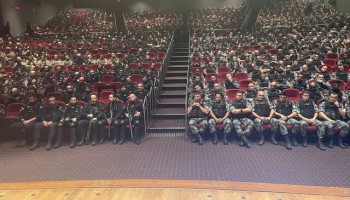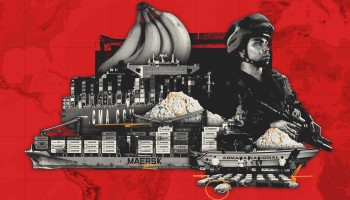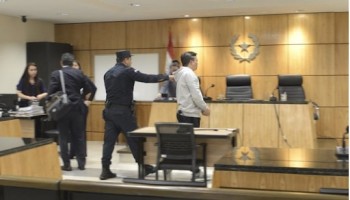Brazilian Minister of Justice and Public Security Anderson Torres traveled to Paraguay’s capital Asunción to sign the agreement. His country initiated the project in hope more neighbors will join.
“The ‘Strategic Alliance against Transnational Organized Crime’ is an initiative carefully designed by the Brazilian government that will join talents of the Southern Cone countries’ security areas to intensify and accelerate hard blows that we are inflicting to organized crime regionally,” Torres said.
“We have strengthened the bonds of cooperation in matters of security and the fight against organized crime,” Paraguayan Minister of Interior Federico González tweeted.
The two countries are home of illicit activities of the most prominent Brazilian prison gang, Primeiro Comando da Capital (PCC), or First Command of Capital. Over the last few years, PCC reportedly spread its criminal operations to cocaine producing countries like Bolivia, infiltrated prison systems in the region and fought to control key border areas. Among other goals, this regional cooperation was set to stop the international expansion of gangs like the PCC.
The Southern Cone’s Tri-Border Area, between Brazil, Argentina, and Paraguay, is reportedly an international hub for smuggling, trafficking in drugs and arms, as well as money laundering.
“Organized crime has no borders and no limits; that is why this declaration for a strategic alliance is very important for us,” González said during the signing ceremony.
Prior to this initiative, three phases of the bilateral police operation Safety Border allegedly arrested PCC gang leaders operating out of Pedro Juan Caballero and Ponta Porã, near the Tri-Border Area.
Over the last few years, the Brazilians and Paraguayans carried out Operation New Alliance, destroying nearly 12,000 tonnes of marijuana. Just last year, more than 5,000 tonnes of drugs were eliminated. Another operation seized nearly US$50 million in assets from smugglers and drug traffickers operating near the Brazilian-Paraguayan border.






